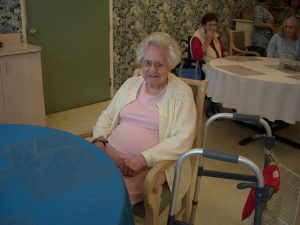Guest Blog: 6 Ways to Naturally Reverse and Heal Decayed Teeth
There is no argument about one thing – brushing is important when you have dental braces. Without proper oral care, you may face issues like tooth decay or cavities. If you do notice a cavity, there is a way to naturally reverse the decay and heal the teeth. Let’s see how you can do that.
- Make Changes in Diet
You can reverse tooth decay by making a few changes in your diet. Some adjustments include:
- Limit the consumption of sugary foods and drinks as sugars can cause plaque and cavities.
- Consume more calcium-rich foods such as broccoli and dairy to strengthen the teeth.
- Add Vitamins and Supplements to the Diet
Certain vitamins help in producing saliva. This, in turn, prevents the bacteria from staying on the teeth. Some vitamins also help in making the teeth stronger. Adding nutritious food to the diet can heal your teeth naturally.
Foods that promote salivation include peas, bananas, and brussels sprouts. Take supplements of Vitamin B, D, iron, and magnesium if you cannot get them from your diet. Eating whole-grain foods and seafood can give the required dose of nutrients and improve oral health.
- Practice Oral Hygiene
Good oral hygiene practices help in protecting the teeth from early decay. Also, make sure to follow a strict oral hygiene routine when you have braces.
- Brush twice a day to remove food particles stuck in the teeth and to keep them clean.
- Floss at least once a day to remove plaque and food that gets stuck under the gums and brackets
- Use a mouthwash to get rid of bacteria in the mouth
- Maintain Necessary pH Levels in the Mouth
Our teeth stay healthy in an alkaline environment. As soon as the pH levels start to dip below the neutral 7, our teeth will start to break down and demineralize.
When there is a pH imbalance, it can create an environment for bacteria to grow and thrive. Avoid foods that can cause pH imbalance such as coffee, citrus fruits or sugars.
Use a remineralizing toothpaste as it can increase the pH level of the mouth and strengthen the tooth enamel.
- Consume Natural Probiotics
Bad bacteria that cause infection search for smaller areas in the teeth to hide. They would decrease the pH value of the mouth as well. Probiotics help in offsetting the acidic pH in the mouth. Consume foods that are rich in probiotics such as curd, kombucha or sauerkraut.
These foods stimulate the production of healthy bacteria in the mouth. This further helps in preventing plaque build-up or decaying of teeth.
- Oil Pulling
This is a simple yet very effective detoxification process for teeth care that includes swishing oil in your mouth for a few minutes. This technique can prevent plaque build-up and gum diseases like gingivitis. Do not swallow the oil and rinse with warm saltwater after swishing. Follow this by brushing your teeth.
Though these natural methods can be very effective, remember that everyone responds differently to these methods. You must also visit your orthodontist regularly to make sure there are no dental problems.
Author Bio:
Dr. Satish Pai is an orthodontist and an Ivy League trained dentist who has served as a faculty at Columbia University. He believes that a perfect smile not only makes a person look great but feel great. As the founder of Putnam Orthodontics and a Partner at Rome Orthodontics, he is dedicated to providing the best orthodontic treatments to his patients. He also writes to educate people about everything orthodontics and the importance of correctly aligned teeth along with good oral health. In his free time, you can find him golfing, doing yoga or surfing, and spending time with his family.



